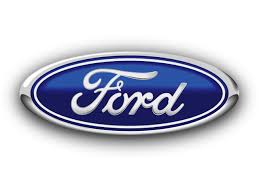F 150 2WD V8-4.6L VIN W (2007)

Air Bag Control Module: Technical Service Bulletins
Restraints - Control Module DTCs & Associated Fault PIDs
TSB 07-12-3
06/25/07
RCM FAULT REPORTING USING DTCS AND
BIT-MAPPED PARAMETER IDENTIFIERS (PIDS) -
SERVICE TIPS
FORD:
2001-2007 Crown Victoria
2002-2007 Taurus
2004-2007 Focus
2005-2007 Five Hundred, Freestyle, Mustang
2006-2007 Fusion
2001-2003 Explorer Sport
2001-2007 Explorer Sport Trac
2002-2003 Windstar
2002-2007 Explorer
2003-2007 Expedition
2004-2007 F-150, Freestar
2005-2007 Escape Hybrid, Escape
2007 E-Series
LINCOLN:
2001-2007 Town Car
2003-2006 Lincoln LS
2006 Zephyr
2007 MKZ
2003-2005 Aviator
2003-2007 Navigator
2006-2007 Mark LT
MERCURY:
2001-2007 Grand Marquis
2002-2005 Sable
2005-2007 Montego
2006-2007 Milan
2002-2007 Mountaineer
2004-2007 Monterey
2005-2007 Mariner
2006-2007 Mariner Hybrid
This article supersedes TSB 07-7-8 to update the vehicle application.
ISSUE
Various 2001-2007 vehicles are equipped with a restraints control module (RCM) that report diagnostic trouble codes (DTCs) which provide general
fault information. These DTCs require accessing the associated bit-mapped PIDs (fault PIDs) to identify the specific fault. Most 2001-2006 Workshop
Manuals (WSM) were written using New Generation STAR Tester (NGS) terminology and navigation which does not translate well when using
Integrated Diagnostic System (IDS), Portable Diagnostic Software (PDS) or Worldwide Diagnostic System (WDS).
ACTION
Refer to the Service Tips to assist with navigation of both the WSM and the scan tool being used.
SERVICE TIPS
DTCs And Associated Fault PIDs Description
Many of the continuous memory and on-demand DTCs that can be present in the RCM provide general fault information and require accessing the
associated bit-mapped PIDs (fault PIDs) to identify the specific concern. DTCs that use fault PIDs are conceptually different from conventional DTCs.
Conventional DTCs identify a specific concern for a given component and point to a particular diagnostic path. In the diagnostic path, PIDs are
sometimes used to determine the root cause.
